Mediamax's exclusive interview with UWC Dilijan head Gabriel Abad Fernandez
This year you left your job in Singapore and came to Armenia. There must have been a range of reasons to choose Armenia and UWC Dilijan. Can you outline your main motives?
The first reason is the vision behind UWC Dilijan College. UWC is a school, but there is a lot more behind it. You get the idea of bringing the first international residence school to the Caucasus, so the students learn about the Caucasus, but the school can be part of the fabric of Dilijan, Tavush, Armenia, and have an influence here. With respect to Dilijan being along the line of the Silk Road, the merging of cultures, it has a deep impact on the city, which fascinates me. We have now an Irish pub in Dilijan! The number of restaurants has increased, and so did he number of local young people who want to learn English so that they can engage in activities, who want to come to the college and do these activities – that is exactly the vision behind UWC Dilijan. It was a captivating vision.
Armenia is a fantastic country! I was very lucky to come to the opening of UWC Dilijan, presenting the school in Singapore where I used to work. I have uncovered a very deep Mediterranean connection with Spain, where I’m from. Even though Armenia is a landlocked country, in terms of the food, the family values, the friendships – you go for a coffee with a friend – I felt myself at home in a very interesting way, because the language and the culture are very different, but there is a connection there. Also, if I grow my beard, I look Armenian. Just look at my nose, my dark hair, I only need to put on a black leather jacket and I can blend in very easily [laughs – Mediamax], which is something that didn’t happen in Asia.
On a serious note, I believe in education, in creating bridges across cultures and between individuals. I discovered UWC fortuitously seventeen years ago. I loved what I did in Singapore, but it was time to try something different.
So, UWC Dilijan is not just an educational project for you, but also a game changer in terms of the region and Armenia.
Yes, and there are multiple ways to do it. One is the number of direct and indirect jobs the school has created, and that is something that Dilijan really needed. Can you imagine the impact on the farmer who was told that we want to sign a contract with him because we serve 700 eggs on daily basis? On that very basic human level, it is a change.
On the cultural level, I can imagine when the first batch of students arrived – and you have people from places like Sierra Leone – and the locals went: “What is going on here?”.
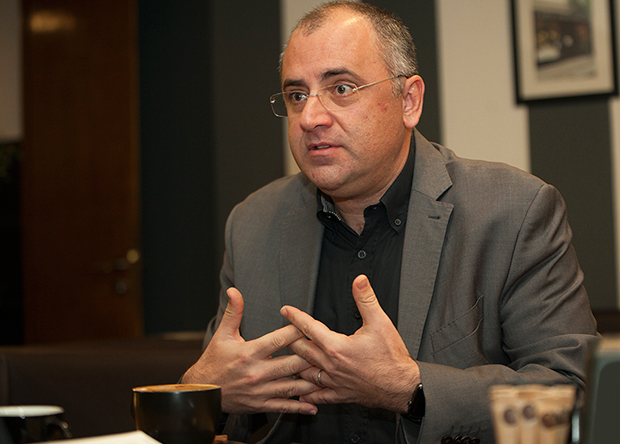 Gabriel Abad Fernandez
Gabriel Abad FernandezPhoto: Mediamax
That exposure and the constant sharing that we offer between cultures and ideas, sharing the arts, is the cultural component. Art students held the Dilijan Art Festival this year, and it was with the city, in the city, in the amphitheatre and open spaces. I think it’s a beautiful project.
Sometimes education is an excuse for little islands: we do this for ourselves in our closed communities, and nobody else is allowed. I love the fact that vision behind UWC Dilijan is the opposite: it is to open up, bring people in and then send them back out, get their local principals and teachers to come and learn something here so they can take it back to their schools. It is for us to go to their land, learn and bring that knowledge back to ours. It has a symbiotic nature and I it’s very special.
Are you satisfied with the level of communication between the college and the local community so far? Do you have ideas how to increase it further?
Some beautiful things are being done. We just had a Winter Bazaar, which was a fascinating idea. You might think, why is the school announcing a Winter Bazaar? Actually, it was a beautiful opportunity for 50+ hand craft experts, restaurateurs and so on to come sell their trade, to build common experience.
There’s a lot to come. I will give you an example. We currently do not teach Armenian. I would like all new members of the college community to at least have an elementary level of Armenian. I have made some progress in my Armenian lessons so far: I can say my name and I can say I am the head of UWC Dilijan international school, but I cannot engage in conversation. At the moment, we do still have the linguistic barrier. The moment that barrier comes down you can integrate on higher levels.
We are already exploring how we can set up the Armenian introductory course, so all new members of the school will be expected to take it at some point. Even if you are only able to introduce yourself, it will bring in, allow global things like football. You need a minimal level of communication so you can understand what you are playing with the other person, and then the language of football will kick in, and you’ll be able to play the game. That is a very basic example.
You have worked in different colleges and schools, and I suppose you visited many as well. What are the main distinctive feature of UWC network?
Many schools have diverse student bodies, but when you look at their staff and education model, they tend to be monocultural, so it is an American school of, a French school of… The students might be diverse, but they are expected to learn one curriculum connected to one country. UWC is different in that it is intentionally diverse: the staff room, the student body. We have 77 nationalities among 218 students, which means that one in every three comes from somewhere different. We do this because we believe it is not about making one golden standard, making everyone speak British English or American English. It is about everyone getting together and learning from each other and learning how to interact across cultures.
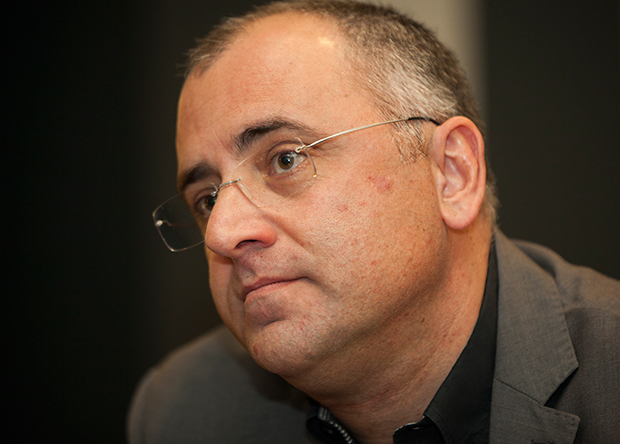 Gabriel Abad Fernandez
Gabriel Abad FernandezPhoto: Mediamax
The world has changed. When you walk around Yerevan now, you’re going to find people from all places. You’re going to find Spanish shops, Italian restaurants. The ability to navigate across cultures while maintaining your own identity is the essential feature of UWC, and that is something that has been part of the UWC educational model from day one. To me, that would be the main difference between UWC and other schools, that there is intentionality in doing this.
We are coming to the end of the year. People usually sum up the passing year and make plans for the next. What are your goals for 2019 in the college and perhaps in the community as well?
In terms of the college, there are different things that we are looking at. One of them is how we can further improve the provision of care for our students. Their diversity is richness, but it also comes with a price, meaning the expectations are completely different. Imagine students from 77 different countries. Their expectations for food, for example, are unique, so if you provide something and they go: “No-no-no, I am vegan,” or vegetarian, or kosher, how do you provide for that diversity? The catering is only one element, so there is a lot more to that. The expectations in terms of privacy, access, activities… We’re going to work on how we can further improve what we have in that respect.
We are also looking at how we can improve the linguistic aspect of the experience. We encourage students to continue developing their language, not to drop it and just take English and then lose that part of their identity. It is very important, it goes back to Ghandi, who said: “I want to open all the windows in my home so the winds can come in, but I will not let the wind topple me.”
In terms of the community, we keep opening avenues to bring the region, the city into the college and vice versa. Our students are teaching Dilijani kids how to swim, because we have the privilege of having a 25m swimming pool. We can do more in terms of opening the facilities, so that they can become not just facilities for the college, but a part of the community facilities. It is difficult, because from my office I can see the visitors coming to campus, and I can see the people getting the sense of awe. They are almost afraid to touch things, so we need to diminish that barrier.
There is big ongoing debate about the challenges that education is facing. What are the main challenges you have outlined for yourself and how do you deal with them?
Many of us are here because the traditional education system worked very well for us. I was a scholarship student, I love studying, I love learning, but if I look back, I can see how many people didn’t make it. There was a huge attrition rate, and that is something that must change because education truly is the most powerful weapon of change in the world, like Nelson Mandela said. In order to achieve that we need to make sure that our education is diverse enough and has different roots, so that we can play to the strengths of the individuals instead of trying to chisel an individual into someone different. There needs to be room for creativity. There needs to be room for exploring one’s passion, trying things. Sometimes you get it right, sometimes you don’t, but if you never try, you may not discover your great passion.
The educational world hasn’t caught up with yet is the fact that both Google and Apple no longer require a degree to work for them. That’s transformational, because they are saying a degree is currency, it’s the equivalent of value that certifies you know how to do something. But if I can find a 14-year-old Romanian boy who submits code he did back home and I like the code, I don’t even need to fly him, he can continue working in Romania. He submits the code to me in California, and that’s it. That is going to change totally how we operate. How do we prepare the schools for that? How do we make sure that our students can follow?
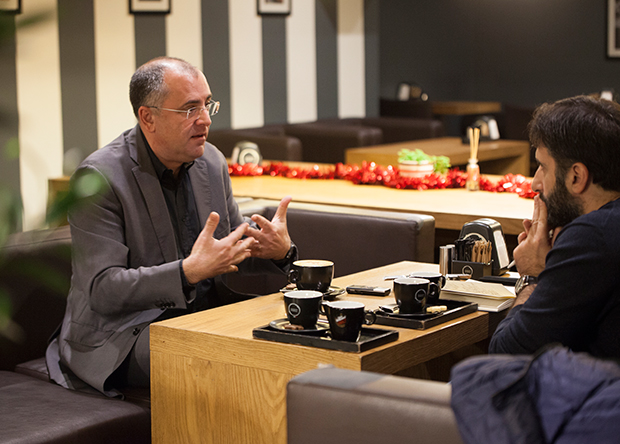 Ara Tadevosyan talks to Gabriel Abad Fernandez
Ara Tadevosyan talks to Gabriel Abad FernandezPhoto: Mediamax
If a student comes to school today and says “I want to code mobile aps”, most schools are going to say: “Right, study math, study physics and computer science, go to the university, get a computer degree and then you’ll be able to do it.” In practice we have kids already doing it. That is a challenge and we need to realize that this industrialized approach to education does not quite work in the post-industrial society.
It means there are people who will continue and be successful along the path, they will go to the university, etc, and there will be people who will finish secondary school and hone their skills. You can become a carpenter, a home developer, and those are very high-level skills that are in demand. We almost need to break the idea that a successful person is somebody who goes to school, then to the university, gets a good degree and then gets a good first job. Actually, if we all do the same, the society will have huge gaps. Imagine if we are all doctors [laughs – Mediamax].
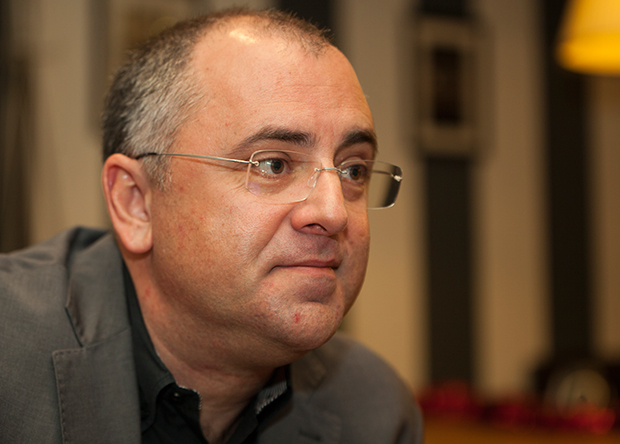 Gabriel Abad Fernandez
Gabriel Abad FernandezPhoto: Mediamax
We need everyone: people who program software to manage the clinic, the nurses, people who have business experience and know how to run a clinic. We need to be more open. It is perhaps fair to say that sometimes education perpetuated that self-serving model: you are a good student because you get good grades doing this. The grades, again, are currency. “I am a very good historian!” No, you are very good at passing history tests, which may not necessarily mean you are a good historian.
We live in the times when we need to start asking some fundamental questions in terms of if we look at how some sectors of the society have been totally disrupted. You can now travel in a foreign country as long as you have Uber, for example, with credit card you are free to roam around. You can use Google maps and you can travel to place you’ve never been to, and even if you can’t read the street signs, you can find your way. That kind of total transformation hasn’t happened in education.
I don’t think the transformation will mean we change education fully. But there has to be more avenues, some of them have to become more diverse and free. There are already schools out there, where students design their own curriculum in conjunction with the teachers. There are schools that decide all assessment will be peer assessment, co-assessment, etc. One of the things that I am very excited about in UWC Dilijan is that we will be working along this line. We are already working with a group of schools in the UWC movement on a new approach to education. The aim is to come up with something that we can pilot using the prototype of an idea. The truth is that the curriculum we are following now was developed fifty years ago. The world has changed significantly from what it was fifty years ago and we do very little in terms of online learning.
We all learn things online. Let’s say, something in my home broke, I could go to Youtube and see how to fix it myself. So, I learn something in a completely different way. But if I go to school, it’s going to be very traditional: open the books and do the exercise. We’ve got something there to integrate face-to-face, because there is huge value. Online education is the biggest change that is happening. There are already universities that offer their courses online, for free. If you want formal accreditation, you have to pay, but if you just want to learn, if you are passionate about astrophysics but you happen to be a librarian, you can enhance your astrophysics knowledge in a way that you couldn’t before. I find that fascinating and also very liberating, very democratic.
Education should be respective of the financial background of the person and that is why we invest so much in scholarships. It needs to be meritocratic. You work, you are valuable, you’ve got ideas and potential, and we are going to support you so you can grow.
Ara Tadevosyan talked to Gabriel Abad Fernández
Photos: Emin Aristakesyan
















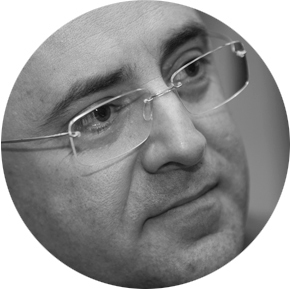

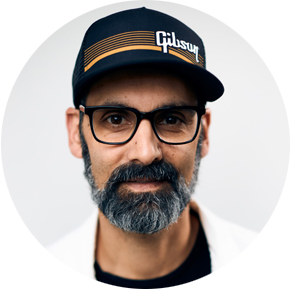
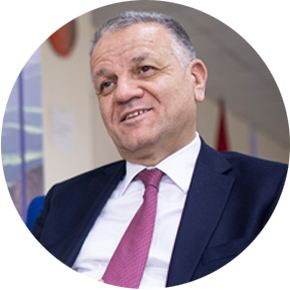
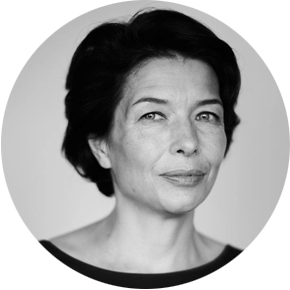





Comments
Dear visitors, You can place your opinion on the material using your Facebook account. Please, be polite and follow our simple rules: you are not allowed to make off - topic comments, place advertisements, use abusive and filthy language. The editorial staff reserves the right to moderate and delete comments in case of breach of the rules.